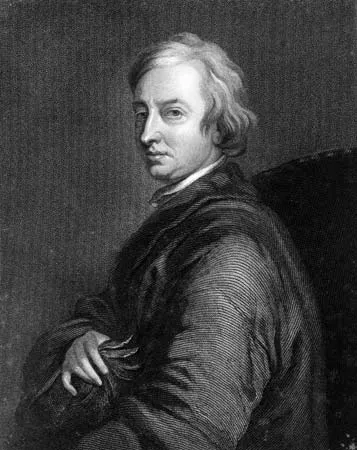Aristotle, the ancient Greek philosopher, and John Dryden, the 17th-century English poet and dramatist, both offered significant contributions to dramatic theory. While their definitions of tragedy and play, respectively, share common ground, they also exhibit distinct perspectives shaped by their historical and cultural contexts.
Aristotle was an Ancient Greek philosopher and polymath. His writings cover a broad range of subjects spanning the natural sciences, philosophy, linguistics, economics, politics, psychology, and the arts.
Aristotle's Definition of Tragedy:
Aristotle's definition of tragedy, as presented in his Poetics, is considered a cornerstone of dramatic theory. He defines tragedy as "an imitation of an action that is serious, complete, and of a certain magnitude; in language embellished with poetry, and performed by actors, not by narration; through pity and fear effecting the catharsis of these emotions.
" Key elements of Aristotle's definition include:
* Imitation: Tragedy is an imitation or representation of life.
* Serious action: The subject matter is grave and significant.
* Completeness: The plot has a clear beginning, middle, and end.
* Magnitude: The action is of a certain importance or scale.
* Poetry: The language is elevated and poetic.
* Actors: The performance is through actors, not narration.
* Catharsis: The goal is to evoke pity and fear in the audience and to achieve a purging or purification of these emotions.
John Dryden
Dryden's Definition of Play
Dryden, writing centuries after Aristotle, offers a broader definition of play that encompasses both tragedy and comedy. In his preface to "All for Love," he defines a play as "a just and lively image of human nature, reflecting our passions and our manners.
" Key elements of Dryden's definition include:
* Image of human nature: Plays should accurately portray human beings and their characteristics.
* Reflection of passions and manners: Plays should depict the emotions and beha
viors of people.
Key Differences Between Aristotle and Dryden:
While both Aristotle and Dryden emphasize the importance of imitation and the portrayal of human nature in drama, their definitions diverge in several key areas:
* Scope:
Aristotle's definition is specifically focused on tragedy, while Dryden's definition encompasses both tragedy and comedy.
* Purpose:
Aristotle views tragedy as a means to achieve catharsis, while Dryden sees plays as a way to reflect human nature.
* Language:
Aristotle emphasizes the use of poetic language in tragedy, while Dryden does not explicitly mention this requirement for plays in general.
* Character:
Aristotle does not explicitly discuss the importance of character in tragedy, while Dryden highlights the need to portray human nature accurately.
* Plot:
Aristotle emphasizes the importance of a complete plot with a beginning, middle, and end, while Dryden does not explicitly mention this requirement.
Analysis of the Differences
The differences between Aristotle's and Dryden's definitions can be attributed to several factors:
* Historical context:
The two thinkers lived in vastly different historical periods, and their definitions reflect the values and concerns of their respective eras. Aristotle's definition is rooted in the classical Greek tradition, while Dryden's definition is influenced by the Renaissance and Enlightenment.
* Cultural context:
The cultural and social contexts of Aristotle and Dryden also shaped their perspectives on drama. Aristotle's definition is informed by Greek mythology and religion, while Dryden's definition is influenced by the English Restoration theater.
* Dramatic conventions:
The dramatic conventions of Aristotle's time differed significantly from those of Dryden's time. Aristotle's definition is based on the conventions of Greek tragedy, which emphasized the importance of plot, character, and language. Dryden's definition is influenced by the conventions of English Restoration drama, which often focused on satire, wit, and spectacle.
The Impact of These Definitions on Dramatic Theory
Both Aristotle's and Dryden's definitions have had a profound impact on dramatic theory and practice. Aristotle's definition has been particularly influential, shaping the understanding of tragedy for centuries. His emphasis on catharsis, plot, character, and language has been adopted by many subsequent dramatists and theorists.
Dryden's definition, while less influential than Aristotle's, has also contributed to dramatic theory. His emphasis on the portrayal of human nature has been important for understanding the goals of drama and the role of the playwright.
Personal Preference:
Ancients:
- Emphasis on classical literature and philosophy: Advocates for the study of ancient Greek and Roman texts, arguing that they contain timeless wisdom and enduring values.
- Focus on traditional values and social structures: Supports the preservation of traditional cultural norms and hierarchies.
- Belief in the superiority of classical art and literature: Argues that ancient works of art and literature represent the pinnacle of human achievement.
Moderns:
- Advocacy for progress and innovation: Emphasizes the importance of scientific inquiry, technological advancements, and social reform.
- Focus on individual rights and liberties: Supports the idea of individual autonomy and the pursuit of personal happiness.
- Belief in the superiority of modern culture: Argues that contemporary society has made significant progress in terms of knowledge, technology, and social justice.
Ultimately, the choice between the Ancients and the Moderns is a complex one that often depends on individual values, beliefs, and experiences. Both perspectives offer valuable insights and perspectives on human culture and socitey .
Conclusion:
In conclusion, Aristotle's and Dryden's definitions of tragedy and play, respectively, share common ground but also exhibit significant differences. Aristotle's definition is more specific and focused on tragedy, while Dryden's definition is broader and encompasses both tragedy and comedy. The differences between the two definitions can be attributed to historical, cultural, and dramatic factors. Both definitions have had a lasting impact on dramatic theory and practice, shaping the understanding of drama and the goals of the playwright.


.jpeg)
.jpeg)










No comments:
Post a Comment